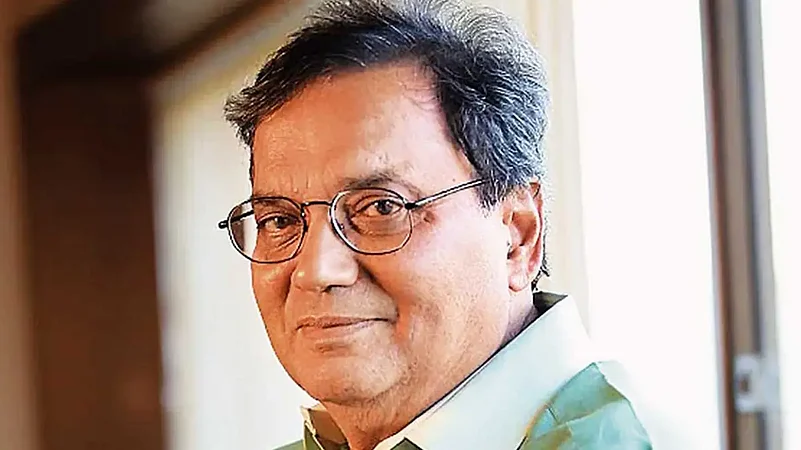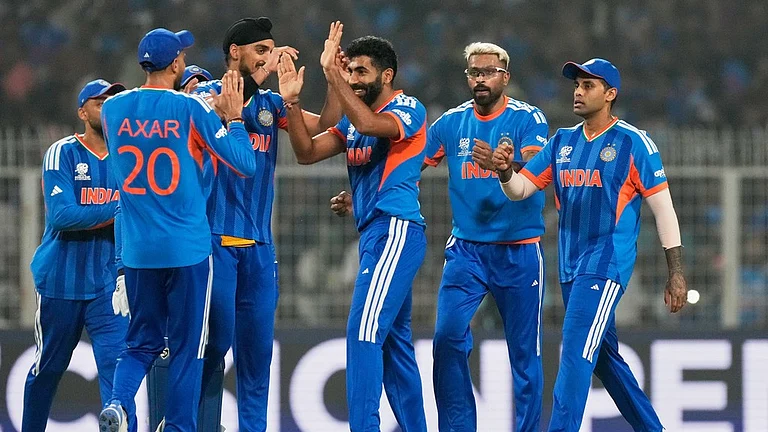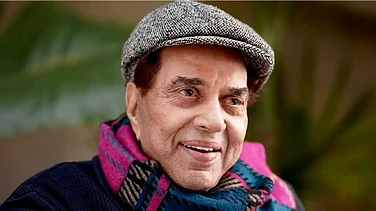Guru Dutt (1925–1964)
Made landmark films in Hindi cinema and also showed his brilliance as an actor. Pyasa, Kaagaz Ke Phool, Sahib Biwi Aur Ghulam, Baazi, and Chaudvin Ka Chand bear ample testimony to his greatness.
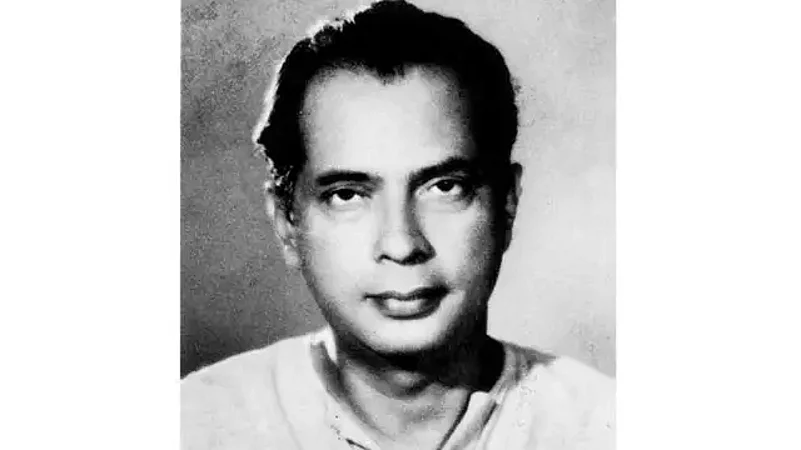
Bimal Roy (1909–1966)
It was films made by directors like him that turned the fifties and sixties into the golden age of Hindi cinema. Through Do Bigha Zamin, Kabuliwala, Sujata, Bandini, Devdas, and Madhumati, Roy tried to show the discrimination, struggle, and inequality in society.
K. Asif (1922–1971)
The passionate filmmaker devoted his life to producing Mughal-e-Azam. The struggle, hard work and patience with which he made the film underline his greatness. He is seen as an institution for young filmmakers.
Mehboob Khan (1907–1964)
His films dealt with social issues in detail, which nobody else could match. Mother India was his best film but he is also remembered for Anmol Ghadi, Aan and Andaz.
Kamal Amrohi (1918–1993)
Social issues and human sensibilities were shown with great care in his films. Amrohi, who made his directorial debut with Mahal, went on to make grand films like Pakeezah and Razia Sultan. His contribution as a writer in Mughal-e-Azam is also remembered.
Hrishikesh Mukherjee (1922–2006)
He made artistic films on social issues. Apart from being a great director, he also worked as a screenwriter and editor. Anand, Guddi, Abhimaan, Satyakam, Bawarchi, Golmaal, Chupke Chupke, the list of his classic movies is quite long.
Muzaffar Ali (1944)
Umrao Jaan made him immortal in the history of Hindi cinema. But Gaman, Anjuman, and Janisaar cannot be underestimated.
Vijay Anand (1934–2004)
He introduced the importance of screenplay to the audience through his fast-paced entertainers. Guide, Jewel Thief, Johny Mera Naam and Teesri Manzil bore the unmistakable stamp of his brand of filmmaking.
Sohrab Modi (1897–1984)
He entered the world of film with Parsi Theatre. Pukar, Sikandar, Yahudi, Jailor and Mirza Ghalib were his best offerings, which delivered strong messages to society.
Ramesh Sippy (1947)
At the age of 28, he directed Sholay, the most successful film in Hindi cinema. Seeta Aur Geeta, Shaan, Shakti, and Sagar are other important films in his career.
Manmohan Desai (1937–1994)
He made a mark by delivering superhit commercial films for three decades. Mard, Coolie, Amar Akbar Anthony, Naseeb and Dharamveer were some of his blockbusters.
Yash Chopra (1932–2012)
He was equally good at making action and romantic films. Deewar, Dil To Pagal Hai, Darr, Mohabbatein, Chandni and Silsila are breezy entertainers.
Shakti Samanta (1926–2009)
He directed many superhits starring Rajesh Khanna in the seventies such as Aradhana. Kati Patang and Amar Prem. But he made hits like Kashmir Ki Kali and Howrah Bridge before that.

Govind Nihalani (1940)
He made artistic and out-of-the-box movies. Ardh Satya, Aakrosh, Tamas, Vijeta, and Hazaar Chaurasi Ki Maa proved that he is one of the finest filmmakers around.
Sai Paranjpe (1938)
She made light-hearted films with subtle humour and fine aesthetic sense and sensibility. Chashme Baddoor, Katha, Sparsh, Disha, and Saaj are films that can be seen anytime.
Vishal Bhardwaj (1965)
Apart from direction, he also did a great job as a composer. Association with Gulzar in Maachis got him the recognition he deserved. In films like Maqbool, Haider, and Omkara, he brought Shakespeare's works to the Hindi screen like never before.
Saeed Akhtar Mirza (1943)
He always made out-of-the-box movies. Albert Pinto Ko Gussa Kyoon Aata Hai, Naseem, Mohan Joshi Hazir Ho, and Salim Langde Pe Mat Ro are his artistic works.

Neeraj Pandey (1973)
Known as the experimental director, his career took off with A Wednesday. Later, he established himself as a maker of action-thrillers such as Baby, Special 26, Naam Shabana, but he also made a great biopic of M S Dhoni in between.
Kundan Shah (1947–2017)
He is remembered for a cult movie, Jaane Bhi Do Yaaro. Kya Kehna and Kabhi Haan Kabhi Naa are his other notable movies.
Dibakar Banerjee (1969)
He ‘arrived’ with Love, Sex Aur Dhokha, Khosla Ka Ghosla and Oye Lucky Lucky Oye, which established him as a pioneer in indie films.

Priyadarshan (1957)
A prolific director who specialises in creating humour with the dialogues and gestures of the actors. Hungama, Hera Pheri, Malamaal Weekly, Bhool Bhulaiya are Virasat some of his films,\ which were lapped up by the audience.
V. Shantaram (1901–1990)
Made a mark with many successful films in Marathi and Hindi. His memorable films include Geet Gaaya Pattharon Ne, Do Aankhen Barah Haath, Navrang, Pinjra, and Jhanak Jhanak Payal Baje.
Chetan Anand (1921–1997)
Elder brother of Dev Anand, he started off with Nicha Nagar, which earned him instant fame. He followed it up with Taxi Driver, Haqeeqat, Kudrat, and Heer Ranjha to establish himself as a director to reckon with.

Mani Ratnam (1956)
The stalwart of Tamil films retold love stories like Roja and Bombay in Hindi, which received a lot of love from the audience and critics. He followed it up with Dil Se, Guru and Yuva.
Nasir Hussain (1926–2002)
He loved to make entertaining films with a lot of action, romance, emotion and, above all, songs and dance. Jab Pyaar Kisi Se Hota Hai, Yaadon Ki Baaraat, Tum Sa Nahi Dekha and Hum Kisise Se Nahin turned out to be great hits.
Pramod Chakraborty (1929– 2004)
He was one of the top directors in the sixties and seventies during which he produced many successful romantic and action films. His famous films include Ziddi, Love in Tokyo, Jugnu, Warrant, Dream Girl, Azaad, Jagir, and Tumse Achcha Kaun Hai.
Raj Khosla (1925–1991)
Dev Anand recognised his talent and gave him an opportunity as a director in CID. He made the most of that opportunity and ruled the roost for many years with films such as Woh Kaun Thi, Mera Saaya, Main Tulsi Tere Aangan KI, Dostana and Do Raaste.
Satyen Bose (1916–1993)
He produced many successful films in the fifties and sixties and made his mark in Hindi cinema with Jeevan Mrityu, Jagriti, Chalti Ka Naam Gaadi, Raat Aur Din, Dosti and many more.
Ketan Mehta (1952)
Ketan Mehta made sensitive, artistic and out-of-the-box films. Mirch Masala, Manjhi: The Mountain Man, Rang Rasiya, Mangal Pandey, Hero Hiralal, Maya Memsab Mehta have been important films in his career.
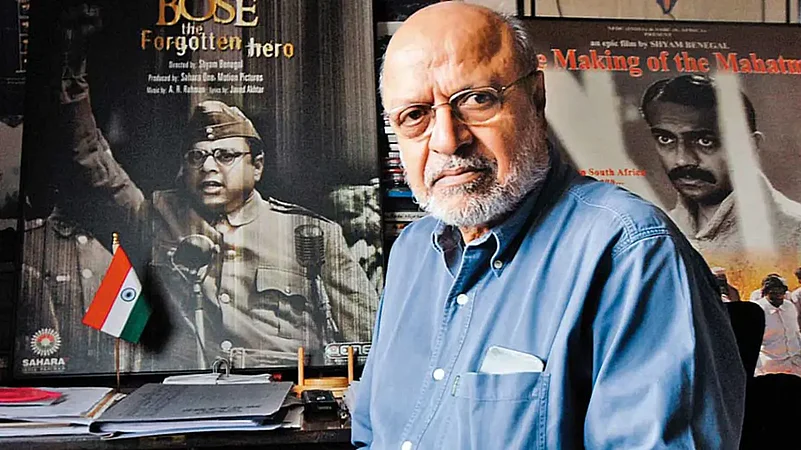
Shyam Benegal (1934)
He ushered in a new kind of realistic cinema by breaking the traditional image of Hindi cinema with films Ankur, Manthan, Nishant, Junoon, Bhumika Mandi and more.
Lekh Tandon (1929–2017)
Professor earned him instant recognition. In a long career, he made films such as Agar Tum Na Hota Hai, Amrapali, Dulhan Wahi Jo Piya Man Bhaye, Doosri Dulhan and Sharda.
H.S. Rawail (1921–2004)
He started with Dorangiya Daku in 1940. But he established in the post-Independence era by making films like Mere Mehboob, Mehboob Ki Mehndi, Laila Majnu, Sangharsh and Patanga.
K. Balachander (1930–2014)
Although he made many Hindi films, the Southern stalwart is remembered primarily for Ek Duuje Ke Liye, a moving love based on the north-south divide.
Basu Bhattacharya (1934–1997)
He started off as an assistant director with director Bimal Roy. But he got recognition from Teesri Kasam. His trilogy of Anubhav, Avishkar and Griha Pravesh on marital problems was also appreciated.
Basu Chatterjee (1927–2020)
Basu Chatterjee preferred simple, effortless plots when Hindi cinema was dominated by action and melodrama. He has many memorable movies like Rajnigandha, Chhoti Si Baat, Shaukeen, Chitchor, Baton Baton Mein and Khatta Meetha to his credit.
Subhash Ghai (1945)
Subhash Ghai produced some very popular films. Kalicharan and Vishwanath earned him special recognition. Vidhaata, Saudagar, Karma, Hero, Ram Lakhan, Khalnayak, Pardes, Taal, and Karz took him to new heights.
Shekhar Kapur (1945)
Shekhar Kapur made films that gave him special recognition in Hindi cinema. After making Masoom, Mr. India, Bandit Queen, he did a great job abroad.
Rohit Shetty (1973)
Rohit Shetty made his mark in Hindi cinema with comedy and action films. Golmaal, Singham, Chennai Express, Bol Bachchan have been superhit movies in his career.
Ram Gopal Varma (1962)
Ram Gopal Varma made many experiments to change the direction of Hindi cinema. Shiva, Satya, Company, Rangeela and Sarkar bore an unmistakable stamp of his style of filmmaking.
Suraj Barjatya (1964)
Best known for the family socials. With Maine Pyar Kiya, Hum Aapke Hain Koun, Hum Saath Saath Hain and Vivaah, he held aloft the banner of Rajshri Films.
Mira Nair (1957)
Mira Nair made films on artistic and sensitive subjects. She won over the audience with Monsoon Wedding, Salaam Bombay and the web show A Suitable Boy.
Prakash Jha (1952)
Prakash Jha gained a lot of popularity in Hindi cinema due to his films on political and social issues. Damul, Gangaajal, Aarakshan, Chakravyuh, Satyagraha, Rajneeti, and Apaharan have been important films in his career.
Goutam Ghose (1950)
Goutam Ghose made his mark through artistic films. Paar and Patang are outstanding films in his career.
Amiya Chakraborty (1912–1957)
Amiya established himself as a fine director with films like Daag, Seema, Patita, and Dekh Kabira Roya.
Subodh Mukherjee (1921–2005)
In the fifties and sixties, Subodh Mukherjee made big hits such as Junglee, Paying Guest, and Munim Ji.
Rajkumar Hirani (1962)
He tried to raise social themes through his cinema in an entertaining way. Lage Raho Munna Bhai, Munnabhai MBBS, PK, 3 Idiots, and Sanju were all well received by the audience.
M. S. Sathyu (1930)
He made his mark by making artistic films. He was one of the early members of IPTA. He got a lot of acclaim for Garm Hava.
Ramanand Sagar (1917–2005)
Ramanand Sagar earned his place in the film industry with films like Arzoo, Geet, Aankhen, and Charas, before making the epic TV serial, Ramayana.
Mansoor Khan (1963)
Director Nasir Hussain's son Mansoor Khan retired from filmmaking after directing films like Qayamat Se Qayamat Tak, Jo Jeeta Wohi Sikandar, Josh and Akele Hum Akele Tum.
B.R. Chopra (1914–2008)
B.R. Chopra made many successful films in his career spanning over fifty years. Naya Daur, Kanoon, Nikaah, Insaaf Ka Tarazu, Sadhna, Gumrah, Dastaan, and Dhund are his most acclaimed films.
Mahesh Bhatt (1948)
Mahesh Bhatt made acclaimed films based on the dynamics of human relationships. Arth, Zakhm, Sadak, Aashiqui, Saaransh make him a special auteur.
Rajkumar Santoshi (1956)
He made a name for himself with his debut in Ghayal in the nineties and followed it up with acclaimed films such as Damini, Ghatak, Andaz Apna Apna, Khaki, China Gate, Lajja, Pukar, and The Legend of Bhagat Singh.

Anurag Kashyap (1972)
Ram Gopal Varma gave him an opportunity as a scriptwriter in Satya which earned him instant recognition. He made Gulaal, Raman Raghav, Black Friday, Manmarziyaan, No Smoking, and Dev D but Gangs of Wasseypur propelled him to the top.
Tigmanshu Dhulia (1967)
After studying at NSD, Tigmanshu Dhulia started making TV serials. The industry noticed him in Haasil. His other popular movies are Paan Singh Tomar, Shagird, Sahib Biwi and Gangster.
Ashutosh Gowariker (1964)
He shot into fame with Lagaan. Known for making period films, his important films are Jodha Akbar, Swades, and Panipat.
Vidhu Vinod Chopra (1952)
Vidhu Vinod Chopra broke from the traditional image of Hindi cinema with Parinda, Khamosh, 1942 A Love Story, Mission Kashmir and Shikara.
Rituparno Ghosh (1963–2013)
Influenced by Satyajit Ray and Rabindranath Thakur, Rituparno Ghosh is known for making a classic like Raincoat.
K Vishwanath (1930)
Southern stalwart K. Vishwanath made great films like Sargam and Sangeet.
Avatar Krishna Kaul (1939–1974)
Kaul is best known for the artistic film 27 Down, but he died soon after making his only films.
Khwaja Ahmad Abbas (1914–1987)
Khwaja Ahmed Abbas is known as a successful film writer, but he produced some films like Saat Hindustani as a director, which was Amitabh Bachchan’s debut movie.
Anurag Basu (1970)
Anurag Basu made a special identity with his artistic and out-of-the-box films. Ludo, Barfi, Gangster, Saya, Jagga Jasoos, and Murder are important films in his career.
Madhur Bhandarkar (1968)
Madhur Bhandarkar came out of the slums of Mumbai to make films like Fashion, Chandni Bar, Traffic Signal, Corporate, and Page 3.
Shoojit Sircar (1967)
Shoojit is known for making films on sensitive subjects. His notable films include Pink, Piku, Madras Cafe, Vicky Donor, and October.
B. R. Ishara (1934–2012)
Babu Ram Ishara made headlines in the seventies by making several bold films, including Chetna and Charitra.
T. Rama Rao (1938-2022)
He produced 75 films in Hindi and Telugu in his long career. Lok Parlok, Judaai, Andha Kanoon are important films in his career.
Prakash Mehra (1939–2009)
Prakash Mehra delivered many superhit films. After giving Amitabh Bachchan the image of an angry young man with Zanjeer, he made Muqaddar Ka Sikandar, Sharabi, Laawaris, Sharabi, and Hera Pheri with him.
JP Dutta (1949)
He made patriotic films based on wars with Pakistan and China such as Border, LOC: Kargil, and Paltan.
Hansal Mehta (1968)
Known for making films on sensitive subjects, he made Aligarh, Shahid, Omerta, and City Lights to carve out a niche for himself. His web show Scam 1992 earned him special recognition.
Aditya Chopra (1971)
Son of Yash Chopra, Aditya Chopra made a name for himself with his debut-making blockbuster Dilwale Dulhania Le Jayenge, which has been the longest-running film in the history of Hindi cinema.
Sanjay Leela Bhansali (1963)
He is known for making epic musicals and historical love stories. He won the hearts of the audience with films like Hum Dil De Chuke Sanam, Devdas, Bajirao Mastani, Padmavat, Ramleela, and Black.
Kumar Shahani (1940)
As a pioneer of parallel cinema, he earned his place by making films like Maya Darpan, Tarang and Kasba.
Sriram Raghavan (1963)
Raghavan, who has won two National Awards, made his mark with films like Andhadhun, Badlapur, Ek Hasina Thi, and Johnny Gaddaar.
Mani Kaul (1944-2011)
Mani Kaul gave impetus to artistic cinema by making films like Ashadh Ka Ek Din, Uski Roti and Duvidha at a time when commercial cinema was at its peak. Kaul, who was a student of Ritwik Ghatak, was a unique director of parallel cinema.
David Dhawan (1951)
In the nineties, David Dhawan scripted box-office success with his comedies. With his regular team of Govinda, Kader Khan, Johnny Lever and Shakti Kapoor, he made the audience laugh like no director of his time.
Karan Johar (1972)
He depicted love in the nineties in style. Kuch Kuch Hota Hai, Kal Ho Naa Ho, My Name is Khan, and Kabhi Khushi Kabhie Gham are important films in his career.


